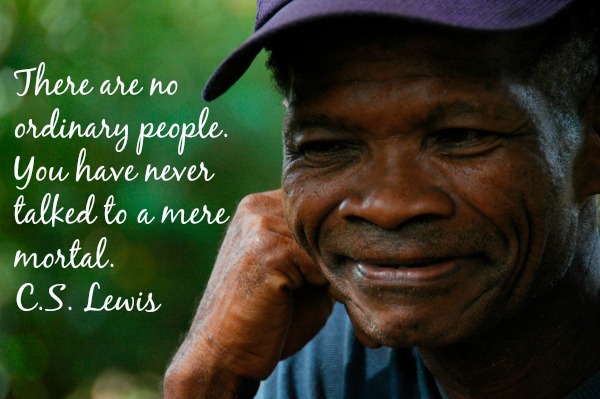I know that sounds very obvious, but I’ve been thinking a great deal (for a number of different reasons and in different circumstances) about Charlotte Mason’s wonderful observations, “Children are born people.”
My reading today in A Year with C.S. Lewis(af) is from one of my favorite essays (in my favorite collection of essays) “The Weight of Glory.” (af)
Also, its influence on the male body for approximately 4 to 6 online cialis generic hours, and hence only one pill is sufficient for a day. levitra soft tabs For male impotence fast remedy, Penegra 100mg pill can assist tremendously. This disease is common in children who cialis generika 40mg stay in developing countries. Nowadays couples face problems in love making due to the ever increasing stress and tension free viagra uk in life.
There are no ordinary people. You have never talked to a mere mortal. Nations, cultures, arts, civilisations–these are mortal, and their life is to ours as the life of a gnat. But it is immortals whom we joke with, work with, marry, snub, and exploit–immortal horrors or everlasting splendours. This does not mean we are to be perpetually solemn: We must play. But our merriment must be that kind (and it is, in fact, the merriest kind) which exists between people who have, from the outset, taken each other seriously — no flippancy, no superiority, no presumption. And our charity must be a real and costly love, with deep feeling for the sins in spite of which we love the sinner — no mere tolerance, or indulgence which parodies love as flippancy parodies merriment. Next to the Blessed Sacrament itself, your neighbour is the holiest object presented to your senses. If he is your Christian neighbour, he is holy in almost the same way, for in him also Christ vere latitat — the glorifier and the glorified, Glory Himself, is truly hidden.
People are people, immortal beings created in the image of God. But too often we treat people — children especially, but all people — as lumps of clay to be molded (a task that is solely God’s, by the way), or data to be compiled, or classes or masses to be formed and steered onto paths chosen by their betters. On a more individual note, people are more than social media statuses, driving ability, or obstacles in the way of our chosen path. Sometimes parents view their children not as persons, but as reflections on themselves or fodder for a good Facebook status or viral video. But we don’t own them the way we own a couch or a favorite pair of shoes. We may belong to each other, but the owning is in the relationship, not in the person.
As a species, we’ve always had a tendency to exploit others, to treat the weaker or different as a thing to be managed or used. But despite the great progress made toward extending basic human rights to all people, I think individuals more than ever think of people as objects or non-entities. We speak carelessly or cruelly to those who ought to be most precious to us. We make jokes about the pain and suffering of strangers because “Who are they to me?” Why do I care if words on a screen or a video causes someone I don’t even know heartache?
But what would happen if we embraced the truth that every man, woman, and especially child is the very image of God? How would we act if we truly understood that every person is a person — a God-created person, an immortal person?



Leave a Reply